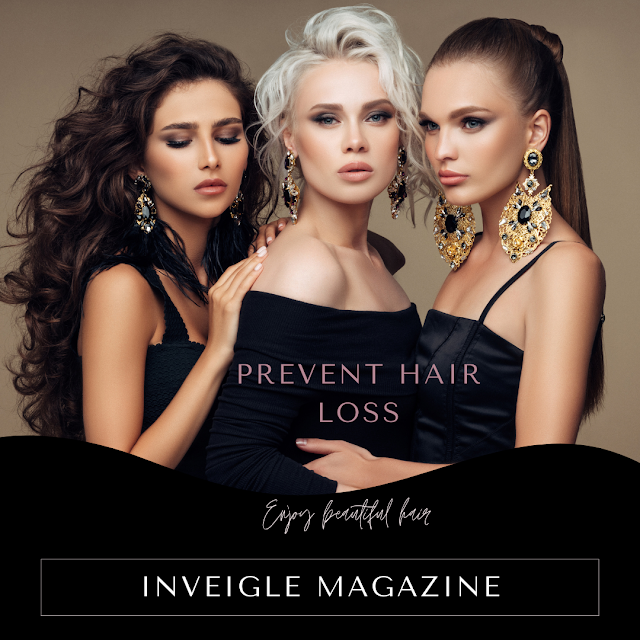 |
| Learn how to repair and prevent hair damage. |
Say Goodbye to Damaged Hair: Tips and Tricks for Beautiful Locks
Hair loss can be a distressing experience for both men and women, and it can be caused by a variety of factors. In this article, we will explore some of the most common causes of hair loss, as well as some effective treatments and prevention methods.
Causes of Hair Loss
One of the leading causes of hair loss is genetics. If you have a family history of baldness, you are more likely to experience hair loss as well. Other factors that can contribute to hair loss include stress, hormonal changes, medication, and certain medical conditions such as thyroid disease or alopecia.
1. How does stress cause hair loss?
Stress can have a negative impact on our bodies in many ways, and hair loss is one of them. When we experience stress, our bodies release a hormone called cortisol, which can disrupt the natural growth cycle of our hair follicles. This can cause hair to fall out more easily and lead to overall thinning of the hair.
Additionally, stress can also cause us to engage in behaviors that further damage our hair, such as pulling or twisting it excessively. Suppose you're experiencing hair loss due to stress. In that case, it's important to take steps to manage your stress levels, such as practicing relaxation techniques, getting regular exercise, and seeking support from friends and family.
2. How do hormonal changes cause hair loss?
Hormonal changes can cause hair loss in several ways. One of the main mechanisms is through the hormone dihydrotestosterone (DHT), which is produced from the male hormone testosterone. DHT shrinks hair follicles, leading to finer and shorter hair growth. Over time, this can result in complete hair loss in some areas of the scalp.
Hormonal changes can also affect the hair growth cycle, leading to an increase in the shedding of hair. This can be seen in conditions such as postpartum hair loss, where the hormonal changes associated with childbirth can cause excessive shedding of hair. Overall, hormonal changes can have a significant impact on hair growth and can lead to hair loss if left untreated.
3. How does medication cause hair loss?
Hair loss can be a side effect of certain medications. Medications that can cause hair loss include chemotherapy drugs, blood thinners, antidepressants, and blood pressure medications.
Hair loss can occur when the medication interferes with the hair growth cycle or damages hair follicles. If you are experiencing hair loss while taking medication, it is important to speak with your doctor about possible solutions or alternative medications.
How does thyroid disease or alopecia cause hair loss?
Thyroid disease and alopecia are two conditions that can cause hair loss. Thyroid disease affects the thyroid gland, which is responsible for producing hormones that regulate the body's metabolism. When the thyroid gland is not functioning properly, it can lead to an imbalance in hormone levels, which can cause hair loss.
Alopecia is an autoimmune disorder that causes hair loss on the scalp and other parts of the body. It occurs when the immune system attacks hair follicles, causing them to shrink and eventually stop producing hair.
Both of these conditions may cause hair loss, but the good news is that there are treatments available that can help manage and even reverse the effects of these conditions. If you are experiencing hair loss, it's important to talk to your doctor to determine the underlying cause and develop a treatment plan that works for you.
Treatments for Hair Loss
There are several treatments available for hair loss, depending on the cause of the problem. For those with genetic hair loss, there are medications such as finasteride and minoxidil that can help to slow down or even reverse the process. Hair transplant surgery is also an option for those who want a more permanent solution.
For those experiencing hair loss due to stress or hormonal changes, addressing the underlying cause is important. This can involve lifestyle changes such as reducing stress levels or taking hormonal supplements.
 |
| Tips for Preventing Hair Damage and Split Ends |
Prevention of Hair Loss
Prevention of hair loss is often easier than treating it once it has already occurred. Maintaining a healthy diet and lifestyle can help to keep your hair healthy and strong. Regular exercise can also help to reduce stress levels, which can be a major contributor to hair loss.
There are also several natural remedies that can help to prevent hair loss. These include using essential oils such as lavender or rosemary, as well as taking supplements such as biotin or zinc.
How does biotin help prevent hair loss?
Biotin is an essential nutrient that is often referred to as vitamin H. It plays a crucial role in maintaining healthy hair, skin, and nails. One of the ways in which biotin helps prevent hair loss is by strengthening the hair follicles. Biotin helps to increase the elasticity of the hair, making it less prone to breakage. It also helps to improve the overall health of the scalp, which can help to prevent hair loss.How does biotin help prevent hair loss?
Biotin is an essential vitamin that plays a vital role in promoting healthy hair growth. It helps to strengthen hair follicles and prevent hair fall by improving the overall health of your hair.
Additionally, biotin also aids in the production of keratin, a protein that makes up the structure of hair, which helps to maintain its thickness and prevent breakage. Regular intake of biotin supplements can help to prevent hair loss and promote healthy hair growth.
In addition, maintaining a balanced diet rich in biotin-rich foods like eggs, nuts, and leafy greens can also provide the necessary nutrients to support healthy hair growth.
In conclusion, hair loss can be a frustrating and distressing experience, but there are many effective treatments and prevention methods available. By understanding the causes of hair loss and taking steps to address them, you can maintain healthy, strong hair for years to come.
Related: Styling tips and tricks: How to style your hair extensions or wigs.
Step-by-Step Guide: How to Apply Tape-In Hair Extensions?
Follow us @ Inveiglemagazi1 & on Linkedin.
Inveigle Magazine


